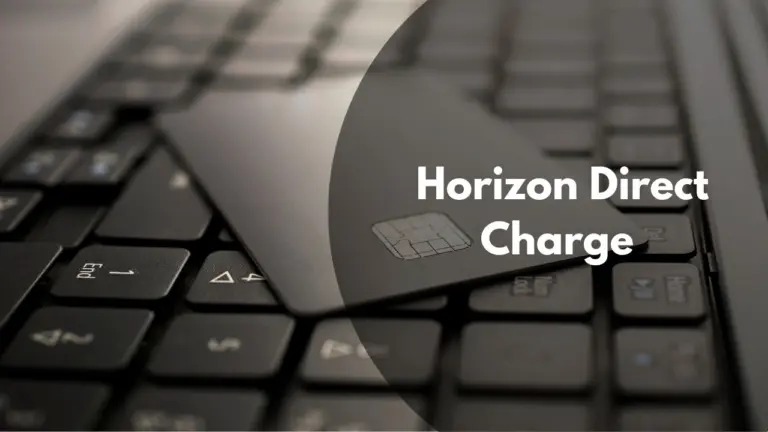AGI TMO Service Fee Charge on Credit Card – Legit or Scam?
Have you noticed the term “AGI TMO Service Fee” on your bank statement and wondered what it means? Many people find such entries confusing, especially when the charge isn’t immediately recognizable.
This fee often relates to device insurance or other services connected to T-Mobile. Understanding why this fee appears and its legitimacy can save you time and prevent unnecessary concern.
In this article, we’ll share why this charge appears on your credit card, helping you grasp its origin, purpose, and how to manage it if needed.
What is the AGI TMO Service Fee?
The AGI TMO Service Fee is typically linked to Asurion Group Inc., which partners with T-Mobile to offer device insurance plans. These plans are designed to protect mobile devices against accidental damage, loss, or theft. If you’ve opted for device insurance through T-Mobile, you’re likely to encounter this fee as a recurring charge.
Sometimes, this fee isn’t limited to insurance plan premiums. It can also include charges for claims you’ve made or deductibles for repairs and replacements. For instance, if you filed a claim for a cracked screen, the associated costs might appear under this label. The term itself is a billing shorthand used by T-Mobile and Asurion.
This fee usually reflects your agreement to enroll in device protection services. However, it’s crucial to verify its accuracy and legitimacy whenever it appears unexpectedly. Knowing where this charge originates can ease your worries and prevent misunderstandings about your billing.
Why Did This Charge Appear on My Statement?
Seeing the AGI TMO Service Fee on your statement might be unexpected, but it usually has valid reasons behind it. Understanding these reasons can help you identify whether the charge is legitimate or requires further investigation.
One of the most common reasons is enrollment in a device protection plan. If you’ve signed up for insurance through T-Mobile, the monthly premium is typically labeled as the AGI TMO Service Fee. This insurance protects your phone against damages, theft, or loss, offering peace of mind.
Another possibility is claim processing fees. When you file a claim with Asurion for a damaged or lost device, there’s usually an associated cost. This fee might show up as AGI TMO Service Fee to cover administrative expenses related to your claim.
Additionally, you might see this fee for deductible payments. After a claim is approved, you’ll often need to pay a deductible to replace or repair your device. This amount, too, can appear under the same label on your statement.
Sometimes, the fee could result from accidental enrollment or technical errors. For instance, if you activated a new line or upgraded your phone, you might have unknowingly agreed to enroll in a protection plan.
If the charge seems out of place, double-check your T-Mobile account or recent transactions. This way, you can confirm whether the fee aligns with services you’ve used or subscribed to. Keeping track of these details ensures you’re only paying for what you’ve agreed to.
Is the AGI TMO Service Fee Legitimate?
The AGI TMO Service Fee is generally legitimate, as it represents charges related to device insurance or protection plans. However, verifying its validity is crucial, especially if you’re unsure why it appears on your statement. Understanding its origins can help you determine whether it’s a valid charge or an error requiring attention.
Most often, the fee is linked to T-Mobile’s device protection plans offered through Asurion. When you enroll in these plans, you agree to a monthly premium that appears on your bill. This premium covers device repair or replacement in cases of accidental damage, theft, or loss. If you’ve knowingly subscribed to this service, the fee is authentic and expected.
In some cases, the fee reflects claim-related charges. For example, when you file a claim for a damaged device, you may incur processing fees or deductible amounts. These fees are billed under the AGI TMO Service Fee label. If you’ve recently filed a claim, this charge is likely legitimate.
However, mistakes can happen. Accidental enrollment or billing errors might cause this fee to appear even if you haven’t signed up for a protection plan. If you don’t recall authorizing such services, it’s important to investigate further.
To verify legitimacy, log in to your T-Mobile account and check your active services. You can also review communication from Asurion regarding any claims or enrollments. If the charge remains unclear, contacting T-Mobile or Asurion customer support can provide clarity and resolve any discrepancies.
How to Verify the AGI TMO Service Fee?
If you notice an AGI TMO Service Fee on your statement and are unsure about its validity, verification is essential. Taking the right steps ensures that the charge is accurate and not an unauthorized deduction. Here’s how you can confirm its authenticity:
- Review Your T-Mobile Account: Start by logging in to your T-Mobile account online or through their app. Navigate to the “Services” or “Billing” section to check for active subscriptions. If you’ve enrolled in a device protection plan, the monthly fee should match the amount on your statement. Also, look for any recent claims or deductible payments that might explain the charge.
- Examine Communication from Asurion: Asurion typically sends confirmation emails or notifications for plan enrollments or claim updates. Search your inbox for any recent messages from Asurion. These could clarify whether the fee corresponds to a new insurance plan, a claim, or another service.
- Contact T-Mobile Customer Service: If you’re unable to identify the fee’s source, reach out to T-Mobile’s customer support team. Their representatives can access your account details and explain why the charge appears. Be prepared to provide your statement details and any related documents.
- Reach Out to Asurion Directly: For charges specifically related to claims, contacting Asurion can offer additional insights. They can confirm whether the fee is tied to a claim, processing costs, or deductibles.
- Dispute Unauthorized Charges: If you find no record of authorizing the service or claim, immediately contact your bank or card issuer. They can help dispute the charge and investigate further.
By verifying the fee promptly, you can address any errors and avoid paying for services you didn’t agree to. This proactive approach ensures peace of mind and keeps your financial records accurate.
Frequently Asked Questions (F.A.Q)
Can I dispute an AGI TMO Service Fee if I didn’t authorize it?
Yes, you can dispute the fee if it appears unauthorized. First, review your account details on T-Mobile’s platform and check for any active device protection plans or recent claims. If you find no valid reason for the charge, contact T-Mobile or Asurion directly to inquire about its origin. If the issue isn’t resolved, escalate the matter by contacting your bank or credit card provider to dispute the charge. They can initiate a refund process and investigate further.
How can I prevent unauthorized AGI TMO Service Fees?
Preventing unauthorized fees starts with being proactive. Regularly review your financial statements and look for unfamiliar charges. Additionally, always read the fine print when activating new services or upgrading your device. Sometimes, device protection plans are added during checkout without clear communication. Setting up transaction alerts through your bank is another effective way to catch unwanted charges immediately.
Are AGI TMO Service Fees refundable?
Refund policies vary depending on the nature of the charge. If the fee is tied to a valid service, such as a device insurance premium or a deductible, refunds may not be possible unless you cancel the service for future billing periods. However, if the charge is found to be an error or unauthorized, T-Mobile, Asurion, or your financial institution may issue a refund after reviewing your case.
What should I do if I accidentally enrolled in a device protection plan?
If you suspect accidental enrollment, contact T-Mobile or Asurion immediately to cancel the plan. Explain the situation, and they may reverse the charges if the service hasn’t been used. Be cautious during transactions, especially when upgrading devices, to avoid repeating this issue.
How do I know if I need a device protection plan?
Assess your usage habits and the cost of potential repairs or replacements. If you frequently experience accidental damage or if replacing your device out-of-pocket seems costly, a protection plan could be a good choice. On the other hand, if you rarely encounter issues and can manage repair costs independently, skipping the plan might save you money.
Wrapping Up
Encountering an unexpected AGI TMO Service Fee can be unsettling, especially when you’re unsure about its origin. However, this fee is often tied to legitimate services like device insurance or claim-related costs. By understanding its purpose and verifying its legitimacy, you can avoid unnecessary confusion and disputes.
| Read Also |
| Lagosec Inc Charge on Credit Card |







